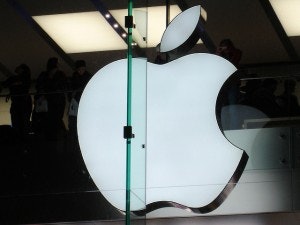In 1999, Apple Inc. (NASDAQ:AAPL) spent less than $200,000 to lobby Washington. Last year it spent approximately $2 million, and this year the company’s on track to spend $4 million. Lobbying Washington is nothing new for major corporations, but Apple’s about to navigate into uncharted waters.
Should investors care about the company’s new presence on the Hill? It all depends on what Apple Inc. (NASDAQ:AAPL)accomplishes in Washington — and that may take a while to determine.
I’m just a bill

It was a good ol’ fashioned congressional grilling, but not much more. The U.S. government can’t force Apple to do anything differently — it’s following the law — and at the end of the day no changes to Apple Inc. (NASDAQ:AAPL)’s tax requirements were made.
What has changed recently for Apple is how it’s decided to approach its relationship with the government. In the past, Apple Inc. (NASDAQ:AAPL) has rarely delved into policies that could affect the company, but now it’s ramping up involvement. Tim Cook personally going to Washington to answer questions was a step in this direction. Cook didn’t need to be there, but he went — at least in part — to make a statement about Apple’s new position in Washington.
Compared to its peers, Apple Inc. (NASDAQ:AAPL) spends next to nothing on lobbying:
| Company | Money Spent on Lobbying (2012) |
|---|---|
| Apple Inc. (NASDAQ:AAPL) | $1.97 million |
| Facebook Inc (NASDAQ:FB) | $3.85 million |
| Oracle Corporation (NASDAQ:ORCL) | $5.76 million |
| Microsoft Corporation (NASDAQ:MSFT) | $8.09 million |
| Google Inc (NASDAQ:GOOG) | $16.48 million |
Source: Open Secrets.
But it’s not always the amount of money that’s spent — it’s about which policies it’s spent on and whether or not the company receives a good return on investment for its lobbying.
Companies know that lobbying can have huge payoffs. When the American Jobs Creation Act (AJCA) of 2004 was passed, after much lobbying by major corporations, it resulted in a repatriated tax rate holiday of just over 5%. The tax savings was expected to create jobs, as the bill’s name implies, but a study from the National Bureau of Economic Research found that 92% of the repatriated money went to share buybacks, dividends and executive bonuses.
Independent studies showed that the return on investment for lobbying for AJCA was a whopping 22,000%. As NPR noted last year, that means for every $1 spent, companies received about $220 in tax benefits. Obviously this return doesn’t mean all lobbying efforts pay off this big, or even pay off at all. But it shows that some lobbying efforts can have enormous benefits for companies.
International Business Machines Corp. (NYSE:IBM) saved $2.8 billion through the AJCA in 2005, but Slate reported that fewer than jobs were created by the company that same year, and may not have even been in the U.S. The company closed 5 million square feet of office space in the U.S that same year. The company spent more than $7 million in lobbying in 2004 and over $8 million in 2005, according to Open Secrets.
Offshore profits
Cook said at the congressional hearings that he’d like the corporate tax rate lowered to 25% and the repatriation rate should be in the single digits. In order for this to happen, new legislation would need to be proposed and approved by Congress.
Apple Inc. (NASDAQ:AAPL) isn’t alone in its pursuit of lower corporate tax rates. Cisco Systems, Inc. (NASDAQ:CSCO) CEO John Chambers said earlier this month that unless the tax rate was changed the company would need to move some of its jobs overseas. About 80% of Cisco’s $46 billion in cash is offshore. The company has used some of its overseas cash to buy foreign companies, purposefully overlooking the purchase of U.S. companies to avoid the high tax rate. Chambers has actively pursued a repatriation holiday for years, but has been unsuccessful. Last year, the company spent about $2.7 million in lobbying costs and over half a million so far this year. It’s not clear how much of that has gone to pursuing lower tax rates, but it’s definitely an important issue for Chambers.

